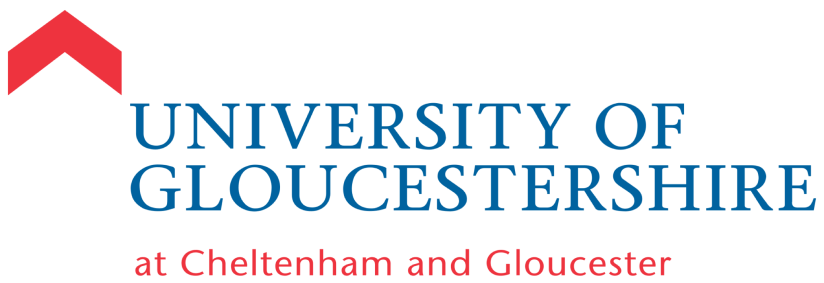Science-driven solutions for real climate impact
The Balance Methodology, converting carbon finance into biodiversity creation.
The Balance Methodology is a comprehensive approach that addresses three major issues in sustainable development: the preservation of biodiversity, human rights and economic co-benefits for local people, and efficacious long-term reduction of greenhouse gas emissions. This methodology has been collaboratively developed by Balance’s team and academic partners, and was published after extensive peer-review by the International Journal of Sustainable Energy. Balance advocates that it is not possible to fight climate change in isolation. Rather, efforts must be in harmony with biodiversity creation and socioeconomic well-being. As a result, Balance puts existing carbon credits through our six-point methodology to make them effective.
Balance
academic
partners
Expanded research being carried out based on the original Balance methodology, up to and including PhD level.






Building ecosystems that empower communities
We work with our Planting Partners to make sure the right trees are planted in the right places, creating long-term biodiversity and local jobs combined with climate action. Together, we support local communities, create sustainable jobs, and monitor ecosystems as they recover—ensuring forests thrive for the lifetime of the carbon they sequester.
Balance Peer Reviewed Methodology
Six Points of
Balance Methodology
- Establishing natural forest cover with a minimum of 99-year protection.
- Uniquely aligns with the atmosphere’s 100-year “radiative forcing” carbon dioxide cycle.
- Ensuring trees are allowed to complete their natural life cycle, including the creation of deadwood to optimize biodiversity and additional carbon sequestration benefits.
- Prioritizing indigenous tree species and local genetic stock, planting the right trees in the right places based on the land’s historical context.
- Ensuring planting is conducted on previously forested land, avoiding non-forest ecosystems.
- Considering soil type and organic matter to optimize carbon sequestration.
- Creating varied stands with genetic diversity, a healthy understorey, and using relevant management cycles to enhance biodiversity.
- Mitigating ecosystem risks from pests, diseases, and invasive species.
- Upholding human rights as a core component of the Balance methodology.
- Ensuring climate action aligns with human rights obligations, protecting the right to food, water, and a healthy environment.
- Encouraging the use of permaculture, biochar, and agroforestry techniques to provide further economic benefit to communities.
- Engaging directly with local community leaders to support forest-based education programs, mental health, and ecosystem services jobs, wherever possible. A minimum of 40% of project development finance goes to the local community, if one exists at the site.
- Ensuring that customers, clients, and the wider public can visit the forest areas they have helped to create.
- Obliging project developers to provide ongoing reporting on biodiversity creation and socio-economic benefits to the local community.
- Keeping clients informed so they can share updates with stakeholders and customers to create a movement.
- Without funding, purchased trees cannot be planted, so Balance ensures that all planting is new and additional, beyond what would have happened without Balance’s support.
- Additionality protocols for UK-based projects conform to the Woodland Carbon Code (WCC), while international projects conform to international protocols, such as Plan Vivo and Gold Standard.
- Contractual protection in case of unforeseen events, such as widespread plant disease, road or building construction, compulsory purchase, or severe natural disasters.
- If such an event occurs, the project developer is obliged to replant the project.
Biodiversity
Balance places a strong emphasis on enhancing and preserving biodiversity through sustainable practices. Species-rich ecosystems are more resilient because different species respond differently to environmental stressors, thereby buffering the system as a whole. The promotion of native tree species in environments that meet their climatic and abiotic requirements fosters genetic diversity, enhancing prospects for climate adaptation and bolstering resilience.
Forests with diverse species composition also have enhanced soil structure, which improves water infiltration and reduces surface runoff. This process helps to recharge groundwater supplies and maintain stream flow during dry periods. Moreover, trees and understorey vegetation reduce soil erosion by stabilizing the soil with their root systems, which is particularly important in hilly or mountainous regions.
Biodiversity also plays a crucial role in carbon sequestration. Diverse forests store carbon far more effectively and safely than monoculture planting. Soil organic matter (SOM), composed of a mixture of materials including soil microbes, decaying organic matter, and decomposed plant and animal tissues, is enriched by high biodiversity, allowing for increased sequestration of carbon (SOC) for several decades. High levels of SOM typically enhance the soil\’s capacity to store carbon, thereby contributing to long-term carbon sequestration.
Biochar, a type of charcoal made from organic materials such as agricultural waste and tree trimmings, offers significant agricultural benefits by improving soil fertility and supporting healthy soil ecosystems. In fire break areas, Biochar plays a crucial role in forest fire management by promoting vegetation growth, soil moisture, and–through its production–removing combustible material from forests. This innovative and ancient technique also plays a vital role in carbon sequestration, holding carbon in an inert form over the long term. By encouraging the use of Biochar across our projects, Balance maximizes the broader ecosystem and climate benefits of every Balance Unit.
Human Rights
The Balance Methodology not only focuses on environmental sustainability but also significantly enhances human rights through various co-benefits. Agroforestry, permaculture, and apiary (beekeeping) initiatives create sustainable livelihoods, promoting food security and economic resilience for local communities. Water catchment enhancement improves water quality and availability, supporting fisheries that provide both nutrition and income. Sustainable firewood management prevents deforestation and reduces environmental degradation, ensuring that forest resources are available for future generations while mitigating fire risks. The diverse array of possible forest products, from timber to non-timber items, can help to sustainably boost local economies. Eco-tourism, an additional benefit of healthy, biodiverse forests, generates income while raising awareness about environmental conservation. These practices present locally valuable economic alternatives to monoculture planting systems, which often lead instead to environmental and economic instability.
Although Balance cannot directly engage in financial compensation to these communities, we encourage project developers to create socio-economic benefits through ethical practices. Additionally, Balance is able to be directly financially involved in the conversion of biochar credits into Balance Units, which are then sold to clients, ensuring that the economic benefits of sustainable practices are realized by local stakeholders.
The Balance Unit
The Balance Unit is a unique metric developed to combine carbon absorption with biodiversity creation and socio-economic well-being, creating a more comprehensive and reliable measure of environmental impact and direct benefits for local people. This approach transforms the traditional carbon finance model by requiring long-term ecosystem and community benefits, ensuring that projects support principles across the UN’s Sustainable Development Goals (SDGs). The Balance Unit is built on three pillars:
- Biodiversity
- Human Rights/Community Economic Benefit
- Climate Change Mitigation
Nationally Determined Contributions (NDCs)
Balance aligns projects with the nationally determined contributions (NDCs) under the Paris Agreement. This alignment ensures that the projects contribute to national and international goals for reducing greenhouse gas emissions and promoting sustainable development. By integrating NDCs into the Balance Methodology, we support countries in meeting their climate commitments,and create a new income stream by becoming balance project developers and advancing global efforts to combat climate change. Balance’s full approach to the UN’s SDGs can be found here.
Co-Benefits
The Balance Methodology generates a wide range of co-benefits that extend beyond environmental impacts, designed to create alternative income streams to monoculture crop plantations. These include:
- Permaculture: A design philosophy inspired by natural ecosystems, permaculture creates self-sufficient and sustainable landscapes, minimizing waste, optimizing resource use, and contributing to the local market with marketable products.
- Apiary: Cultivates bee colonies for pollination and products like honey and beeswax, sustaining local economies, enhancing food production, and generating additional community income.
- Water Catchment Enhancement: Improves water quality and availability by reforesting, conserving soil and implementing efficient land management, which boosts water storage, reduces flooding risks, and promotes river flow, also potentially increasing sustainable income from fisheries.
- Forest Products: Encompass a wide array of goods from forests, including timber and non-timber products such as furniture, fruits, nuts, and medicinal plants.
- Sustainable Firewood Management: Ensures the responsible use of forest resources for energy, preventing deforestation, minimizing environmental impacts, and removing combustible materials to mitigate fire risks.
- Eco-tourism: Unlike monoculture-planted sites, dense and biodiverse forest environments are valuable and worth visiting. Eco-tourism markets can generate significant income for local people while increasing the incentive for others to invest in forests, too.
- Agroforestry: Integrates trees, crops, and livestock to enhance ecosystem resilience, augment biodiversity, improve soil fertility, and establish sustainable livelihoods.
- Biochar Production: Converts organic biomass into charcoal through controlled pyrolysis, enhancing soil fertility, retaining nutrients, and sequestering carbon. This is effective Carbon Capture and Storage, involving and benefitting indigenous communities with long-term environmental benefit. Biochar credits can then be converted to Balance Units and sold, generating a long-term and sustainable income source for our project developers.
Biochar credits can then be converted to Balance Units and sold, generating a long-term and sustainable income source for our project developers.
Regenerative Agriculture & Carbon Capture and Storage (CCS)
In addition to our primary focus areas, Balance is involved in two important by-products of the Balance Methodology: promoting regenerative agriculture and carbon capture and storage (CCS). For participating project developers, this can result in a long-term economic benefit to the developer, creating a sustained relationship for decades to come, generating capital, sequestering carbon, and improving soil fertility. These practices, particularly the use of Biochar, are highly effective and cost-efficient methods for improving soil health and capturing carbon. By integrating these approaches into its projects, Balance further enhances the sustainability and impact of each Balance Unit, contributing to a healthier, happier, and more resilient planet.
Ongoing Research
Balance is actively engaged in several cutting-edge research projects that have evolved from our Methodology, involving experts in various academic disciplines. These projects range from ecology modeling for better biodiversity measures, to environmental science for sustainable practices, economics for long-term impact modeling, and public policy for the improvement of international climate policy and governance.
Get Balanced Now
Transform your footprint into Balance Units quickly and credibly with our groundbreaking calculators. Whether you're a large corporation, SME, or individual, our easy-to-use tools allow you to act fast and lead by example. Calculate your carbon footprint and purchase Balance Units to show the world what real nature restoration and climate action looks like.

Balance
my life
No receipts, no hassle—our income-based calculator saves you hours of calculations and helps you fund nature restoration and create jobs for local people.

Balance to Sector
Our new, game-changing calculator uses your sector's carbon total and your business' turnover to estimate your carbon footprint—saving you months and thousands in assessment fees.

Balance to Assessment
For large corporations needing full carbon assessments, our partner Ecometrica thoroughly analyses your scope 1, 2 and 3 emissions, helping you reduce the Balance effectively.
FAQs
Balance is a fresh approach, moving on from carbon neutral, combining biodiversity and economics with Climate.
The purchase of a Balance Unit guarantees that at least a tonne of carbon will be taken out of the atmosphere over time as a direct result of the company’s contribution. We plant trees in a biodiversity-supportive way, That creates sustainable income for local people in accredited forests with full carbon monitoring, supplemented by the planting of new saplings in a location that is convenient to the client’s business, creating visible impact. Our planting partners have to adhere to the best-practice principles created from the innovative balance methodology and Planting Partner Contract (see below).
All ‘additionality’ is mitigated, meaning that the Balance Unit results in genuine carbon reduction rather than being attached to planting that might have happened anyway (as was sometimes the case in the carbon market historically).
This means that a client can have confidence that their contributions have made a genuine difference, as well as having a visible demonstration of their commitment to the environment through natural woodland growing in accessible locations that provides income for local people.
Every Balance Unit will result in at least one tonne of carbon taken out of the atmosphere over time in a way which creates biodiversity and jobs for local people.
Balance carbon quantities are based on the tonnage of carbon sequestered per hectare. For an in-depth read on the science behind Balance please see our peer reviewed methodology.
Biodiversity matters deeply to the future of life on Earth. It is not a luxury. Plants, animals, and fungi do not exist in isolation but in complex and connected ecosystems, which form the foundations of human life. Balance integrates, three pillars of action, biodiversity, economics and climate in order to create a holistic approach. A healthy ecosystem carries out a number of vital roles – not just preserving the climate, but also cleaning water, maintaining soil, purifying air, recycling nutrients, and creating habitats. A biodiverse ecosystem is also resilient and a good insurance against unforeseen environmental events resulting from climate change. But when one part is lost, the whole system is threatened, and we are losing biodiversity at unprecedented rates around the world, with thousands of species facing extinction every year.
It is vital, therefore, that tree planting occurs in a sustainably biodiverse way That empowers local communities to gain income from the forests so they will protect them for decades to come -it is not just trees, but the right trees in the right place in the right way with the right protection. A true commitment to biodiversity means not only hitting a number but encouraging the symbiotic chains on which nature depends, such as leaving dead wood for bugs that can in turn be enjoyed by woodpeckers. It’s a commitment that we ensure happens over time, not just for a year or two. When this happens, we are truly protecting our futures, not just hoping for the best. Balance also supports natural regeneration and rewilding projects which can help with this process.
For companies that do not have a current carbon assessment, we offer two options.
Balance to Sector is an innovative, validated approach developed by Balance that allows organisations to estimate their Scope 1 and 2 emissions simply by inputting annual turnover and company registration number. These two inputs allow us to provide high accurate estimate with minimal time spent and at no cost. This is an attractive option for many smaller companies without complex supply chains. To try out the simplicity of Balance to Sector click here.
Balance to Assessment is suitable for organisations with significant supply chains who need to include their supply chain emissions (Scope 3) in the calculation of their total carbon footprint. The Balance to Assessment tool provides a thorough in-depth study of a company’s emissions with step-by-step assistance from expert analysts. It is powered by Ecometrica, a leader in environmental monitoring and reporting. Further details here.
The two approaches are very different. We combine biodiversity creation with economic well-being for local people moving on from carbon offsetting delivering a holistic approach . Although the intentions of the original carbon offsetting approach were good, abuses and speculation crept in which vastly reduced their value to society and the environment, and led to wide scepticism. For example, much capital was invested in renewable energy systems that might have been developed anyway rather than in sustainable natural forestry. The Balance approach has taken the lessons from this experience and used them to provide a radically different and improved alternative. Some of the key differences are shown below.
| Carbon offsetting | Balance approach |
|---|---|
| Carbon offset only | Sustainable biodiversity and carbon reduction |
| Side effects on local communities | Respect for local community welfare and wishes |
| Opaque | Transparent and verifiable |
| ‘Carbon neutral’ | Environmentally balanced over the long term |
| Trading-oriented | Solution-oriented |
| Issues around ‘additionality’ | Investment linked to real actions |
| Often inappropriate monoculture or industrial-style planting | Indigenous trees planted only |
| No control on location | Forests you can see and touch |
| Limited future protection | Guaranteed protection against future events such as new rail developments |
| Renewable energy offsets or GHG equivalents | Balance is solely focused on biodiverse forestry |
Emissions do not cause all their damage immediately. In the process of radiative forcing, it takes 50 years for CO2 to be at its most potent and, at minimum, another 50 years for it to be reabsorbed, which is why it is vital that climate protection actions take a much longer view than has often been the case in the past. We therefore write our planting partner contracts to cover 99 years, although our forests are designed to be around for a lot longer than that. (The Forest of Marston Vale has an 840-year lease, for example.)
Every Balance Tonne guarantees that at least a tonne of carbon will be taken out of the atmosphere, which means that planting needs to occur in carefully monitored and regulated Balanced Forests. The ‘extra tree’, linked to the Balance Tonne on our database, is not subject to the same degree of costs and regulation, but this allows flexibility for the trees (one per Balance Tonne) to be planted in locations that are desirable for specific reasons, for example, proximity to customers, or to support visible wildlife corridors near urban centres. This extra tree is not instead of other plantings. It is a small biodiversity enhancing thank you from you to your customers, and a visible symbol of their much-needed support for priceless natural ecosystems enabling planting to take place in locations that would not receive funding from carbon finance.
Some of this can get quite complex, so please feel free contact us if you would like to discuss any of it further, and we welcome suggestions and feedback.

